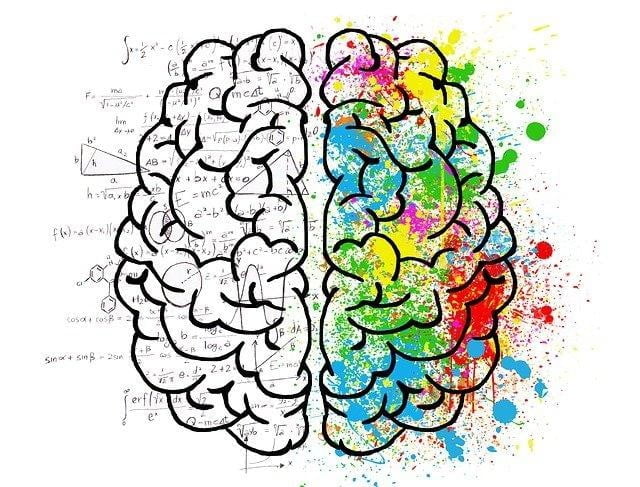Can Cannabis Enhance Your Cognitive Power?
Cognitive power or cognitive ability refers to brain-based functions that control every human action. The mental skills that guide our actions include attention, learning, perception (senses), memory, decision-making, and problem-solving. However, cognitive abilities are alterable and can either intensify or decline based on age, illness, and lifestyle choices. Cannabis use is among the lifestyle choices that affect cognitive skills.
Table of Contents
ToggleWhile cannabis proponents argue it heightens cognitive abilities, many people don’t really understand how this works. So, how does cannabis enhance your cognitive power? Find out more on how cannabis affects specific cognitive functions below:
1. Perception
Perception is a cognitive function that allows human beings to respond to external stimuli using their senses. Using perception, we can process information from our environment and interact with the world and each other.
Cannabis strains contain hundreds of organic compounds called cannabinoids; however, its two main active cannabinoids are THC and CBD. THC is a psychoactive compound and causes a “high” effect, while CBD has no psychedelic effects. Legal cannabis stores like Just Cannabis weed dispensary stock high-quality products containing favourable THC: CBD ratios.
Cannabis users who take high-THC marijuana report feeling a heightened sensory experience of euphoria. For instance, food smells and tastes better, and the palate can perceive more flavour profiles. Music also sounds more pleasant, and sights seem more apparent and beautiful.
A research study on cannabis’s impact on the senses showed that THC affects the olfactory receptors that process smell and taste information. Another scientific explanation is that cannabis stimulates the nervous system to release dopamine, which processes pleasurable feelings, rewarding stimuli, and enjoyment.
Additionally, CBD heightens feelings of well-being, awareness, and clarity; hence, managing anxiety. While cannabis may heighten your senses during each experience, its long-term impact on perception remains unknown.
2. Memory
Memory is the cognitive process that enables you to store, process, and retrieve information. It facilitates learning and gives you a sense of identity because we can recall your name, age, family members and history, among other vital information.
There are two types of memory; short-term/working memory that processes incoming information and long-term memory that stores processed information. Cannabis has a different impact on each memory; the effect also depends on THC and CBD levels in the cannabis product.
A research study on CBD’s effects on memory shows it is conducive for long-term memory. The animal-based study showed that CBD had a positive impact on memory-degenerating diseases like Alzheimer’s. People suffering from such neurodegenerative diseases use CBD-high cannabis products to improve their memory function.
3. Learning
Learning is a process that allows the brain to grasp and retain information from various interactions actively. The hippocampus, embedded in the frontal lobe cortex of the brain, is the part of the brain that facilitates learning. Learning builds on interest and concentration; it allows us to acquire new skills and achieve a sense of accomplishment.
Previous outlooks on the effects of cannabis on learning centred on the chronic use of cannabis. However, a recent study shows that THC promotes hippocampal neurogenesis through the hormesis effect.
The hormesis effect is the body’s dose-dependent reaction to chemical and organic compounds characterized by low-dose stimulation and high-dose inhibition. Therefore, THC positively affects the brain in small doses and negatively affects it when taken in larger doses. One recent research finding also shows that CBD increases blood flow to the hippocampus.
Whether cannabis helps people with normal cognitive function improve their learning capacity is unclear. However, it undoubtedly aids people with neurodegenerative diseases.
4. Attention
Attention is the ability to focus on something perceivable and respond accordingly. For instance, when crossing the road, you focus on the traffic lights and make your move when they turn. Attention is essential for inhibitory control and enables you to control your emotions and behaviour.
Anecdotal evidence by people who use cannabis suggests that it sharpens their ability and skills while doing specific tasks. One research study conducted among patients with bipolar disorder also noted a positive association between the history of marijuana use and improved cognitive performance on attention.
Both THC and CBD interact with dopamine receptors that regulate motivation and reward-seeking behaviour. Increased motivation and desire for reward may cause you to focus on a specific task, like studying to pass an exam. However, the heightened attention only lasts during intoxication.
5. Decision-making
All the cognitive functions above influence decision-making and problem-solving. Many cannabis users use it to unlock creativity and perform better at work. Creativity is essential for solving problems and making judgment calls at work and away from work.
One research study found that cannabis promotes divergent or lateral thinking, a thought process that generates multiple solutions for a single problem quickly.
Conclusion
Marijuana has a unique effect on various users, so it may or may not enhance your cognitive ability. You can use it and monitor how it affects your specific cognitive functions; however, remember less is more.


